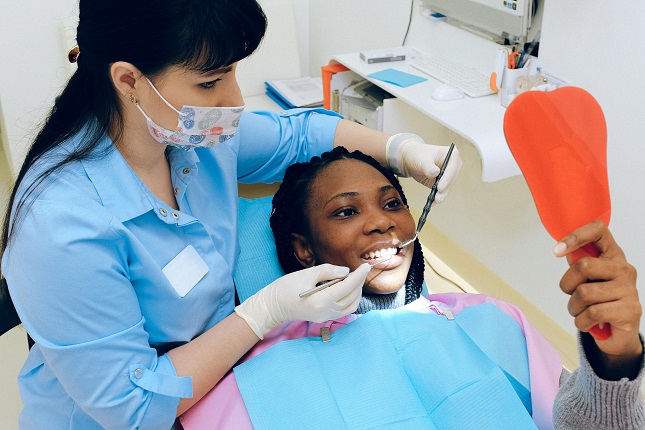When I started my first job in a fast-paced corporate environment, oral health wasn’t exactly at the top of my priority list. Like many, I thought brushing twice a day was enough. That was until I faced a sudden, unbearable toothache during an important presentation. The emergency visit to a dental clinic near me was a wake-up call. It made me realize the importance of regular dental check-ups, not just for me but for every employee. HR departments now emphasize oral health as a key part of employee wellness programs, and for good reason.
The Connection Between Oral Health and Workplace Productivity
Why Oral Health Matters at Work
Oral health isn’t just about having a bright smile; it’s linked to overall well-being. Dental issues can lead to:
- Chronic pain affecting focus and productivity
- Increased sick days due to dental emergencies
- Poor mental health from ongoing discomfort
Real-Life Impact
I once had a colleague who frequently missed work due to recurring dental problems. It not only affected her performance but also the team’s efficiency. After she started regular check-ups at a dental clinic near me, her attendance and productivity improved remarkably.
Why HR Advocates for Regular Dental Check-Ups
1) Reducing Absenteeism
Dental issues are a leading cause of unplanned sick leave. By encouraging regular check-ups, HR can:
- Prevent dental emergencies before they escalate
- Minimize disruptions in work schedules
- Improve overall employee health
2) Enhancing Employee Engagement
Healthy employees are happier and more engaged. Regular dental visits can:
- Boost self-confidence
- Reduce stress related to dental problems
- Encourage positive workplace culture
3) Lowering Healthcare Costs
Preventive care is cost-effective. Early detection of dental issues reduces the need for expensive treatments. HR departments recognize that promoting visits to a dental clinic near me helps control long-term healthcare expenses.
How to Promote Dental Health in the Workplace
1) Implement Employee Wellness Programs
Incorporate dental health as a key component of wellness programs. Offer:
- On-site dental screenings
- Workshops on oral hygiene
- Educational materials
2) Partner with Local Dental Clinics
Collaborate with reputable clinics like Nuffield Dental to provide employees with:
- Exclusive discounts
- Priority appointments
- Access to preventive care resources
3) Flexible Work Schedules for Appointments
Allowing flexible hours for dental appointments reduces stress and encourages employees to prioritize their health.
Benefits of Visiting a Dental Clinic Near Me
Choosing a local clinic offers:
- Convenience: Easy access encourages regular visits.
- Quick Response: Faster appointments for emergencies.
- Personalized Care: Building a rapport with local dental professionals.
Regular visits to a dental clinic near me like Nuffield Dental transformed my oral health. The convenience made it easier to stick to appointments, and the ongoing care prevented future issues.
Final Thoughts
Oral health is more than just a personal issue; it’s a workplace priority. My own experience with a dental clinic near me highlighted how regular check-ups can prevent painful problems and improve quality of life. HR departments play a crucial role in advocating for dental health, ensuring employees are healthy, happy, and productive. Prioritize your oral health today—your smile, your job performance, and your overall well-being depend on it.
FAQs About Dental Health in the Workplace
1. How Often Should Employees Visit the Dentist?
It’s recommended to have a dental check-up every six months. However, employees with specific dental conditions may need more frequent visits.
2. Can Poor Oral Health Affect Job Performance?
Yes, dental pain and discomfort can reduce focus, productivity, and overall job performance.
3. Is It Cost-Effective for Companies to Support Dental Health?
Absolutely. Preventive care reduces the risk of costly emergency treatments and lowers overall healthcare costs.
4. What Are the Signs That an Employee Needs Immediate Dental Care?
- Persistent toothache
- Swollen gums
- Bleeding during brushing
- Loose teeth
5. How Can HR Encourage Employees to Prioritize Dental Health?
By integrating dental care into wellness programs, offering flexible schedules, and providing information on local dental clinics.









































